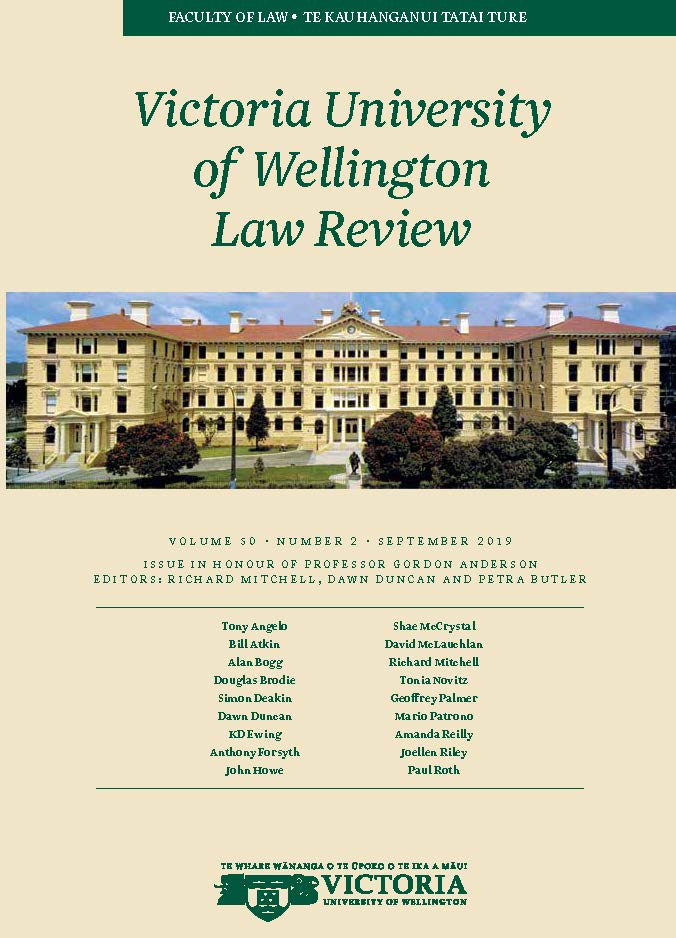The Unfinished Paper – A Tribute to Gordon Anderson
DOI:
https://doi.org/10.26686/vuwlr.v50i2.5741Abstract
This article revisits arguments about the death of labour law, and re-examines claims by Richard Mitchell that such arguments are mistaken. In the first half of the article I argue that the law of the labour market is not labour law as the latter discipline developed in the 20th century. I also argue that there is a clear ethical core to labour law which sets it apart from the law of the labour market, and that this ethical core is the consequence of political struggle. Labour law gives effect to the principle of international law that labour is not a commodity, a principle which the law of the labour market subverts. The purpose of revisiting this debate is to examine whether labour law as so understood can be resurrected. For this purpose, I focus on the recent work of Harry Arthurs who in a series of lectures and elsewhere provides a withering assessment of the current state of play and a bleak outlook for the future. While I agree strongly with his assessment of the current condition of the discipline, I take issue with his pessimistic vision of the future, which in my view underestimates the importance of political struggle in effecting social, economic and legal change.
Downloads
Downloads
Published
How to Cite
Issue
Section
License
Authors retain copyright in their work published in the Victoria University of Wellington Law Review.


